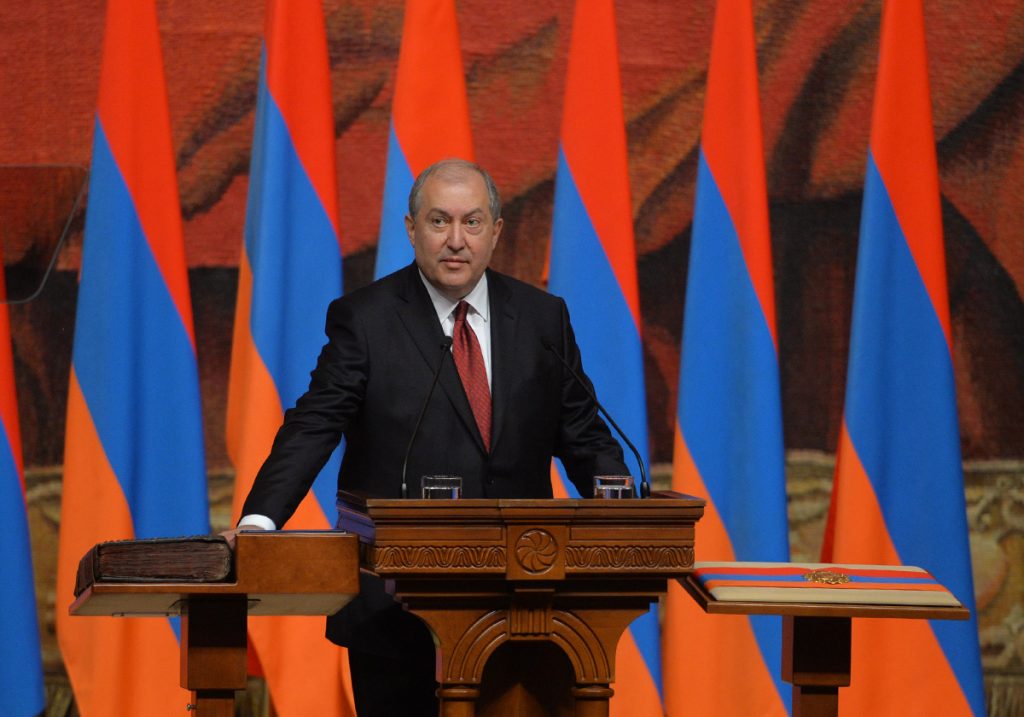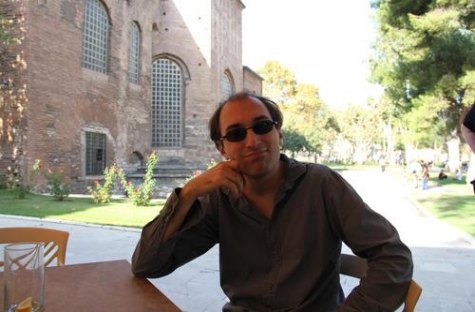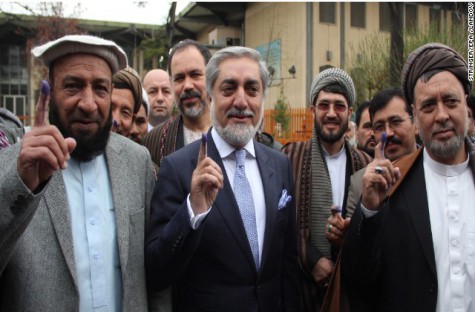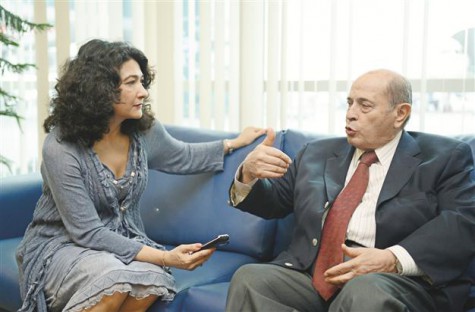No serious problem and significant development is expected to take place in Armenia in 2013 in the economic area. Although Armenia had greatly been affected by the world economic crisis and had experienced a decrease of approximately 15% in its national income, it has been able to recover over time although slowly. It was indicated in the press that an increase of about 7% in the gross national product (GNP) would take place in 2012. It is likely that this tendency to recover will continue in 2013. The problem for Armenian economy is structural and political. Armenia does not possess natural energy resources. A significant amount of the energy it uses is supplied by the Metsamor Nuclear Power Plant on the Turkish border. It is necessary for this power plant, which has already lived out its time span and in a time of accident could not only harm Armenia, but also Turkey due to its old technology, to be renewed. But how this will be financed has not yet gained clarity. On the other hand, apart from some minerals, Armenia also does not possess valuable natural resources. Furthermore, significant heavy industry or industries specializing in some areas also do not exist. Tourism revenues are limited. Besides the selling of a certain amount of wine and cognac, income received from agricultural products is also not that high. In this situation, the assistance and investments of the Diaspora and especially the money it sends to the families of those Armenians working in Russia and the credits obtained from international organizations such as the IMF and World Bank play an important role within Armenian economy. From a political aspect, the Turkish border remaining closed and Armenia’s defense expenditures have a negative affect on the country’s economy. It is certain that the opening of the Turkish border will positively contribute to Armenian economy. Opening of the Azerbaijani border will have the same affect, although to a lower degree. However, since Armenia is not willing to resolve the Karabakh issue, it is not expected for the borders to open. On the other hand, the Turkish border remaining closed has left Armenia outside projects on the transfer of petroleum and natural gas towards the West such as the Baku-Tblisi-Ceyhan and Baku-Tblisi-Erzurum projects. It is out of the question for Armenia to join TANAP, which will be implemented in the upcoming years. Armenia remaining outside these projects has resulted in it being deprived of passage fees and the opportunity to obtain petroleum and natural gas at a cheap price. No result has been obtained so far from the discussions held for almost twenty years through the Minsk Group for brining an end to the occupation of Karabakh and the surrounding Azeri territories. Since neither Armenia nor the US, Russia and France, the Co-Chairs of the Minks Group, are willing for negotiations to continue through another mediation formula, no positive developments are expected in the near future concerning the Karabakh conflict. Although Azerbaijan supports the settlement of this conflict through peaceful measures, it emphasizes that it will resort to all means in order to rescue their territories if it becomes obvious that no result will be obtained through these measures. According to the press, Azerbaijan is rapidly arming. Although some Armenian sources indicate that the country has the capabilities to defend itself, it is quite clear that it will be impossible for Armenia to win an arms race once it starts. Allocating more resources for armament will create for Armenia serious economic problems and this will not only cause instability in domestic politics, but will also increase migration to other countries which is still being complained about. Tomorrow we will address possible developments that could take place in Turkey-Armenia relations in 2013.
© 2009-2025 Center for Eurasian Studies (AVİM) All Rights Reserved
THE AFTERMATH OF APRIL 24
 THE INAUGURATION SPEECH OF THE NEWLY ELECTED ARMENIAN PRESIDENT ARMEN SARKISSIAN: MORE OF THE SAME IDEOLOGICAL OUTLOOK
THE INAUGURATION SPEECH OF THE NEWLY ELECTED ARMENIAN PRESIDENT ARMEN SARKISSIAN: MORE OF THE SAME IDEOLOGICAL OUTLOOK
 WHO IS RESPONSIBLE FOR THE CLOSING OF TURKISH-ARMENIAN BORDER?
WHO IS RESPONSIBLE FOR THE CLOSING OF TURKISH-ARMENIAN BORDER?
 AFGHANISTAN'S ABDULLAH LEADS IN VOTE COUNT
AFGHANISTAN'S ABDULLAH LEADS IN VOTE COUNT
 TURKISH PM’S ARMENIAN STATEMENT UNIMAGINABLE JUST 20 YEARS AGO
TURKISH PM’S ARMENIAN STATEMENT UNIMAGINABLE JUST 20 YEARS AGO
 A RUSSIAN SOLDIER’S MULTIPLE KILLINGS IN ARMENIA
A RUSSIAN SOLDIER’S MULTIPLE KILLINGS IN ARMENIA




























